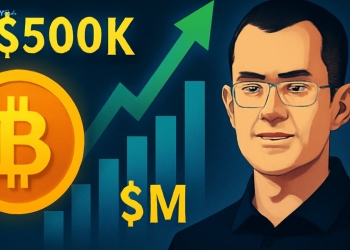The proposal, which was floated by former Prime Minister Thaksin Shinawatra, consisted of a Bitcoin pilot program in the tourist hotspot Phuket. It hopes to show Phuket serves as a pilot for cryptocurrency adoption aimed at tourism and investment This is part of Thailand’s increased interest in keeping up with international digital trends.
Attention on the proposal has also come from outside of Thailand, notably from Nirun Fuwattananukul, CEO of Gulf Binance, who praised the vision of a progressive Thailand welcoming of digital finance. Nonetheless, regulatory hurdles remain, especially in light of the Bank of Thailand’s (BoT) strict approach to crypto payments.
What if Bitcoin is Implemented in Tourism?
In an effort to attract tech-savvy tourists and investors, Thaksin’s proposal seeks to merge Bitcoin payments into Phuket’s economy. Through its reliance on tourism, the country will have a competitive advantage in providing for the growing global utilization of digital assets.
“This will bring Thailand to the forefront of a marker in digital finance,” Nirun Fuwattananukul said. Countries such as Japan and the United States already permit bitcoin payments, he noted, providing a potential framework for Thailand.
Why Phuket?
The project is a pilot project; it is appropriate to implement in Phuket because Phuket is an internationally major tourism destination. A sandbox environment would allow authorities to analyze Bitcoin payments in a realistic setting without the configuration of a full nationwide rollout.
“Involving cryptocurrency integration in new technology projects like that, especially in places like destination cities, is a great choice, and Phuket, with its heavy reliance on tourism and foreign investment, makes an excellent breeding ground,” Nirun said.
The Bank of Thailand is wary despite the excitement. Its ban on cryptocurrency payments is due to fears over volatility, security, and potential risks to the economy. These issues need to be solved with a close working relationship between the BoT and the SEC and with the government overseeing digital assets.
Regulators will need to update legal frameworks, protect consumers, and preserve monetary sovereignty for this pilot to succeed. “The framework needs to meet with Thailand’s monetary policies and also preserve currency controls,” Nirun said.
A Bitcoin Sandbox but Not Without Risk
There are several benefits to implementing Bitcoin in a sandbox-style way. It would give businesses and consumers firsthand experience while allowing authorities to discover and act against potential risk.
A successful pilot could further bolster Thailand’s standing as an innovative and fintech-friendly nation. “If implemented properly, this project has great potential to attract a new demographic of tourists and investors,” Nirun said.
Challenges To Implementation
However, the path to execution is not straightforward. Key issues include:
Coordination between Regulatory Agencies: The jurisdictions of the BoT and SEC need to be in agreement.
Consumer safety: Users should not be subject to fraud or compromised transactions, and efforts must be made to ensure this.
Economic consequences: Authorities should head to consider how crypto might impact financial flows.
A lot of crypto platforms are inaccessible to foreigners
The rollout may be stymied by Thailand’s often glacial bureaucratic processes, however, in spite of the obvious potential for economic expansion.
Looking Ahead
Though it faces many hurdles, advocates say adopting Bitcoin payments could bolster Thailand’s competitiveness in the world. “Thailand cannot be left in the dust as other countries move toward digital currency,” Nirun said.
Successful implementation of this pilot could set a precedent for wider use of cryptocurrency in Thailand, demonstrating the country’s willingness to engage in financial innovation without compromising economic security.
Stay connected with TurkishNY Radio by following us on Twitter and LinkedIn, and join our Telegram channel for more news.
FAQs
“The Bitcoin pilot project on Phuket Island is important for tourism.”
The project seeks to benefit Phuket’s tourism economy by allowing Bitcoin payments, appealing to tech-savvy tourists and investors, and demonstrating Thailand’s commitment to digital financial integration.
Why was Phuket selected as a Bitcoin pilot?
Tourism-driven Phuket is a prime candidate for experimentation with Bitcoin, given its high footfall of both traditional tourists and visitors who use cryptocurrency.
What does the Bitcoin pilot project challenge?
Yet to take effect, the project must overcome regulatory challenges (particularly the Bank of Thailand’s concerns regarding issues of volatility, monetary stability, and risk of fraud) and therefore must align itself with the SEC to be implemented.
What would be the effect of Bitcoin payments on Phuket’s tourism economy?
Bitcoin payments could interest tech-savvy tourists, boost foreign investments, and profile Phuket as a 21st-century tourist destination, improving Thailand’s status in digital finance around the world.































































































![BitTorrent [New]](https://s2.coinmarketcap.com/static/img/coins/64x64/16086.png)
















